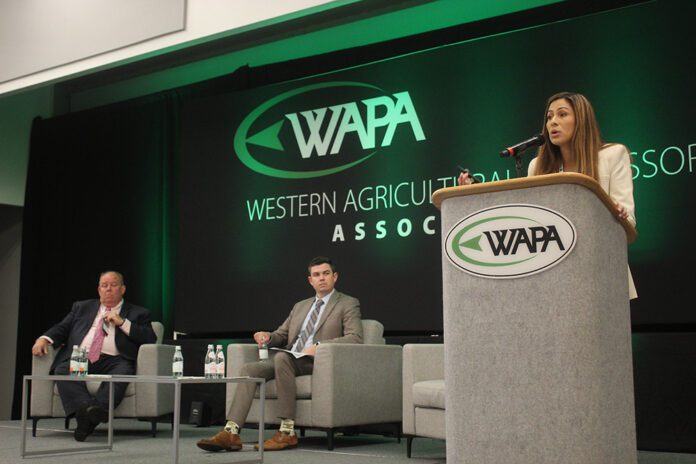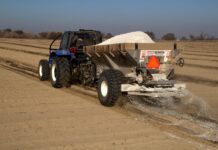Western Agricultural Processors Association is now Western Tree Nut Association and its annual meeting in June will reflect the association’s nut industry focus and broadened grower representation.
The Western Tree Nut Association (WTNA), in partnership with West Coast Nut magazine, will gather for its annual meeting June 11–13 at the Monterey Conference Center, marking its first event under the new name and expanded mission. Though the association’s focus remains the same—advocating for the tree nut industry in the legislative and regulatory arena—it now formally includes growers alongside hullers and processors.
“This organization has always been about tree nuts,” said Roger Isom, longtime industry leader and president of WTNA. “But over the years, we were asked by growers, regulators and legislators to expand our representation. The time is now.”
The leadership decided a name change was appropriate to better reflect its broadened base. While the association initially formed to represent hullers and processors, its work has long intersected with issues critical to growers, such as pesticides, energy, air quality and water regulation.
The expanded association aims to strengthen its influence with state and federal regulators, ensuring growers’ voices are heard in Sacramento and Washington, D.C.
The upcoming annual meeting promises a dense agenda over three days, featuring key legislative updates, regulatory briefings and industry discussions. The golf tournament, industry dinner, business meeting and trade show round out three days of activities.
This year’s programming will reflect its grower membership, including new exhibitors and speakers addressing grower-specific concerns.

Highlights include:
• Legislative panels featuring lawmakers discussing state and federal issues, including tariffs and solar energy regulations.
• Staff reports on pesticides, worker safety, and water quality issues.
• Updates on new legislative initiatives sponsored by WTNA, such as efforts to promote compost use in organic orchards and streamline agricultural waste reporting.
One of the key regulatory issues WTNA is tackling involves securing continued availability of safe and effective pesticides and ensuring sound science is behind regulatory decisions. Water quality and soaring costs is another pressing concern. The association is also working on dust control and air quality compliance, worker safety initiatives, and supporting funding for low-emission agricultural equipment.
Adding growers to WTNA’s leadership structure has been a carefully planned transition. Two growers have already joined the board, with three more expected by the June meeting. Ultimately, the board will have equal representation: 16 growers and 16 hullers or processors.
With its expanded resources, WTNA plans to hire a Washington, D.C.-based lobbyist to advocate for tree nut interests. There has historically been a gap in national representation for tree nuts, which the association hopes to fill.
“We’re really hoping that by folding in growers, we’ll have continuous representation at both the state and federal level,” Isom said.
Overall, the June meeting will compress a wealth of information into a short timeframe, offering attendees crucial insights into legislative, regulatory and operational challenges facing the tree nut industry.

Marni Katz
Marni Katz has lived and raised her family in the San Joaquin Valley for nearly 30 years. In that time, she has covered agriculture for a number of leading ag publications and organizations and gained a reputation for understanding and digesting complex information and presenting it to growers. She enjoys learning about new ways growers can farm more profitably and efficiently, and working with researchers and stakeholders to bring that information to the growing community. In her free time, Marni plays saxophone with jazz groups throughout the Valley and is an avid tennis nut.
















